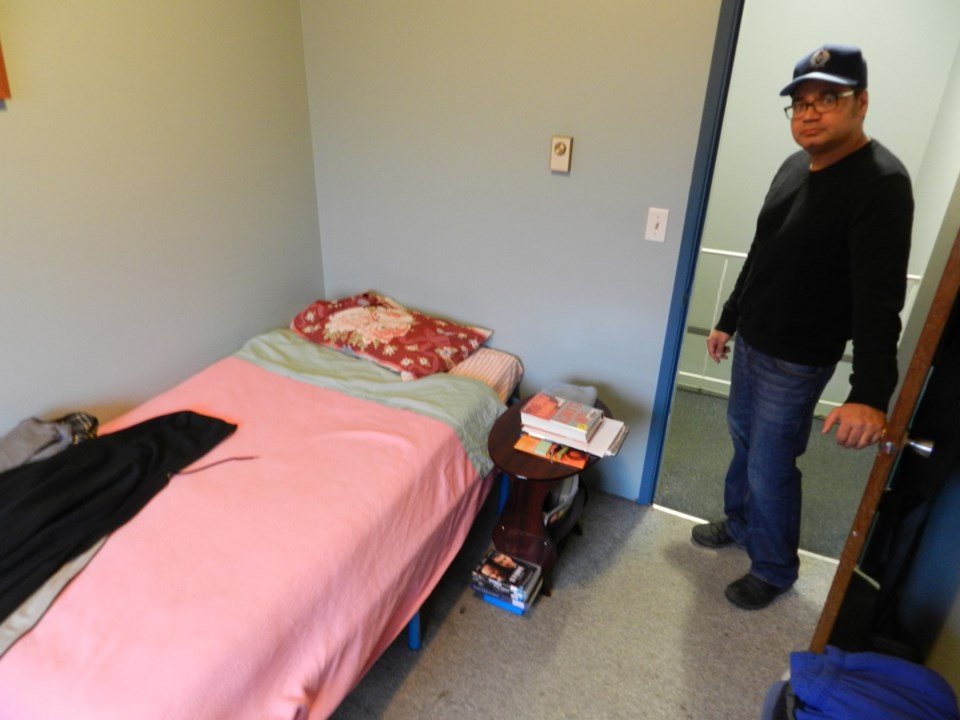There is one Extreme Weather Shelter in Richmond. Why do I mention this now that our weather has turned to flowers, sunshine (well, some days) and sandals? Because, here at Chimo we’re busy making plans for winter. This is when the shelter becomes activated again.
Richmond’s Extreme Weather Shelter is activated (opened) when the weather becomes very cold (around freezing or below) or when there are extreme weather conditions such as heavy rain or wind. The shelter provides temporary emergency shelter spaces when extreme weather conditions threaten the health and safety of homeless individuals. Overall, it is a time-limited, weather responsive, temporary shelter in communities such as Richmond, that don’t have sufficient shelter bed capacity during extreme weather conditions.
Recently, while speaking to a Richmond RCMP officer, he told me that this past winter he came across a homeless person, in a wheelchair, tucked in next to a building trying to keep warm. The officer inquired why this person wasn’t in a shelter and the reply was, “Because it’s too warm out.”
The officer then told me that it was very cold out — he himself was dressed in a heavy jacket and couldn’t imagine trying to sleep overnight in that cold. That’s when I told him that Extreme Weather Shelters are typically activated when temperatures reach near or below zero.
Richmond’s Extreme Weather Shelter consists of a large room where people sleep on the floor. When the shelter is activated, due to bad weather conditions, several volunteers jump into action. Pads and bedding are laid out on the floor, potatoes are peeled, food is cooked, and a sheet is hung on one area of the large room so that women are provided a sense of privacy.
The shelter can accommodate 16-20 people. Anything over that amount and we have to direct people to other shelters in nearby cities. Some choose to go and some choose to sleep outside. When asked why they choose to sleep outside, we have received various answers.
This past winter we offered to provide bus passes to a man in a wheelchair so he could get to a shelter in North Vancouver that had space for him — but he declined and chose to sleep outside. The thought of traveling by bus in his wheelchair, with his other health conditions, all the way to North Van, late at night in the cold and rain, was just too much for him.
Even when there is room in a shelter, people may choose to sleep outside rather than in the shelter. Sometimes this is because of paranoia of large groups. Or it’s because shelters sometimes can be considered dangerous — everything you own, from your shoes to your shopping cart full of clothing and blankets (that has to be left outside unattended) can be stolen. Sometimes it’s because you don’t like how people treat you in a shelter. Sometimes it’s because you’re trying to find a job or have just found a job and the shelter hours aren’t flexible enough to accommodate this. Sometimes you have a dog and they’re not allowed in the shelter. And sometimes you just can’t stand the noise from all the coughing.
So, instead, you choose to battle the weather and sleep on the streets.
There’s a difference between a full-time shelter and an extreme weather shelter. One is open to clients every day and the extreme weather shelter is open only during bad weather.
In Richmond, we have a full-time men’s shelter that is wonderfully and expertly operated by the Salvation Army. And when the weather turns bad, the Extreme Weather Shelter, located at St. Albans Church, and operated by Chimo, is activated, adding extra available beds for those who choose to come in from the cold. However, Richmond has no women’s shelter (though Salvation Army is currently working to rectify that with the support from Chimo).
With the increasing problems of unavailable affordable housing in Richmond, we anticipate seeing a rise in the numbers of people seeking access to shelters — women and men. And we anticipate an increase in the numbers of people choosing to live on the streets rather than standing in line and accessing available shelter beds.
This can and will result in higher costs to us all as police, hospitals and social services get involved. But I just wonder if people needing shelter would change their minds about sleeping outside if, instead of mats on the floor, we offered small, single rooms with locks; rooms that came with few rules and regulations. Perhaps this would be what was needed to encourage people to finally come off the streets — for good.
Diane Sugars is the executive director of Chimo Community Services.



